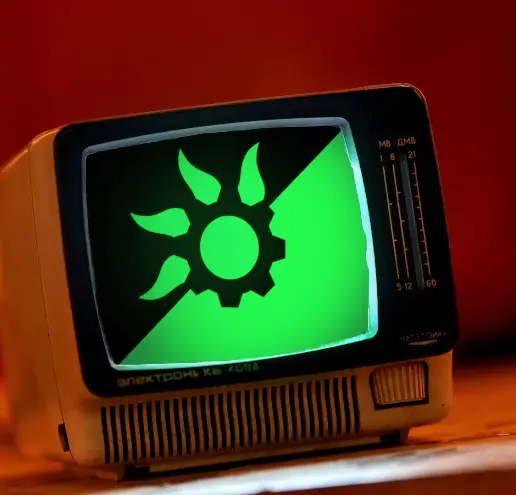ProdigalFrog
A frog who wants the objective truth about anything and everything.
Admin of SLRPNK.net
XMPP: prodigalfrog@slrpnk.net
Matrix: @prodigalfrog:matrix.org
- 1.6K Posts
- 2.26K Comments

 2·12 hours ago
2·12 hours agoI think the zeitgeist is beginning to shift, and we can help move it along with our own collective effort, and leading by example in our own communities (online or offline).
I don’t disagree that stopping the majority of emissions at their source (corporations) is the ultimate end goal, but as you say, we don’t know when that will happen. Could be in 3 years, could be in a decade or two.
I’m advocating we do what we can to buy us (and especially the poorest and most vulnerable populations) a little more time while we wait for that major reckoning to happen. Besides, if we’re collectively unwilling to even give up a little bit of beef in favor of plants or chicken, that doesn’t bode well for us when the time comes to make much bigger sacrifices to take on those big polluters, and capitalism itself.
If we make society more egalitarian someday, we’ll still ultimately have to rely on people becoming informed of what we need to do to save the planet from climate change, and then enact those things in their lives willingly themselves. There’s no real reason we shouldn’t be a part of that change now, rather than wait.
And I do want to emphasize how incredibly good Impossible meat is as an extremely convenient drop-in replacement for ground beef or steak bites. It often goes on sale, which brings the price down to be fairly comparable to animal meat. If you haven’t tried it yet, I highly suggest picking some up when you see some on sale, it makes the transition away from animal meat much much easier, as it allows you to continue to use all of your existing recipes. Quorn is another really solid option that’s comparable in price to animal meat, and when cooked with some beef or chicken stock, tastes very, very similarly to real meat in a recipe.

 4·16 hours ago
4·16 hours agoYou could also create your own meat alternatives with tofu or Seitan, which are very cheap to make ^^

 3·16 hours ago
3·16 hours agoAs is Tofu, Seitan (homemade), and lentils!

 2·16 hours ago
2·16 hours agoAs an individual, it’s a drop in the ocean, yes. But done collectively at scale, those drops become a meaningful difference. In regards to animal meat, if we collectively switch to plant based options, we literally strangle the means for the animal industry to pollute. It’s a form of direct action that anyone can partake in. Even just opting for chicken instead of red meat, if done collevtively, would result in substantial decreases in emissions.

 3·16 hours ago
3·16 hours agoThere are quite a few options we can do that either cost nothing to do, or even save money compared to the higher emission option.
- Animal meat is usually more expensive than a plant based diet. Quorn is on par or cheaper than ground beef, homemade Seitan from vital gluten comes out to around $1.80/lb. Tofu, lentils, and beans are also extremely cheap. Red meat is the most polluting, so even just switching to chicken + vegetarian options would make a substantial difference.
- Turning the temperature down in the winter will use substantially less energy and lower your bills, and can be compensated for with the use of hot water bottles, heating pads, and bundling up, along with other methods.
- Consider joining your local Strong Towns (if you live in the US) to help make non-car transport more viable, even for rural areas.
- Buy used instead of new where possible, and buy as little as needed.
- There are low-cost solar options that can be implented slowly over time, and can be made extremely affordable using used panels from Craigslist/Facebook marketplace.
All of these combined will drastically lower your emissions. As an individual it wouldn’t impact much, but done collectively, it can make a genuine difference. I can at least vouch that you’d be joining in with me :p

 3·1 day ago
3·1 day agoThe thing is, we’re at a point where any reduction or slowing of Co2 is a victory, and can at the very least buy us (especially the populations most effected) a little bit more time to get our collective shit together against the big polluters.
But we don’t know when that time will come, so we need to do as much as we can until then. We know the billionaires planes will continue, but we can at the very least prevent some of our own emissions from compounding with them. Us doing our bit is not negated by the billionaires not joining in with us. It’s not fair, but the climate doesn’t care about fair, it cares about total emissions.
So let’s chip in collectively to slow things down, even if only slightly, until we can slow it down a lot. :)

 4·1 day ago
4·1 day agoGive the plant based meats a try, like Impossible meat or Quorn. They’re astonishingly good now, and have completely replaced animal meat for me.

 6·1 day ago
6·1 day agoSeems to be working on my end. What sort’ve error is it giving you?
According to the description, the original video on youtube was deleted, but it does have a link to the transcription of the video, if that helps.

 3·2 days ago
3·2 days agoSurprised to see this game is still actively developed. I played it briefly as a teenager, but at the time is was very half-baked. Wonder how far its come after so many years.

 4·2 days ago
4·2 days agoEdge, opera, brave, they’re all chromium based.
The only independent browsers still standing are Safari and Firefox (and its forks).
I think this post would be better suited for !climate@slrpnk.net than here, as it doesn’t really have any direct relation to solarpunk.

 9·3 days ago
9·3 days agoThe most powerful act Bernie and the rest of the democrat politicians could do is loudly claim they are Antifa, to dare them to arrest them or do anything about it.

 1·3 days ago
1·3 days agoHighly recommend checking out videos from:
They’re the only leftist guntubers out there, with high quality and informative content.

 3·3 days ago
3·3 days agoWadjeteye games (who published primordia) mostly publish serious non-comedic point’n’clicks. I highly recommend Gemini Rue by them.

 6·3 days ago
6·3 days agoTheir thesis is that increasing amounts and intensity of hurricanes compared to past decades due to climate change has overstepped the affected state’s ability to recover before the next one hits, limiting services and life-saving infrastructure.
I would highly recommend The Chrysalids by John Wyndham. There’s an excellent audio book version available for free on Archive.org.
It’s very well written classic sci-fi.
Some others that I thoroughly enjoyed:
- Starwolf - Edmond Hamilton
- The Stainless Steel Rat - Harry Harrison
- The Jameson Satellite - Neil R. Jones
- Gunner Cade - Cyril Kornbluth & Judith Merrill
- The Shockwave Rider - John Brunner
- Fahrenheit 451 - Ray Bradbury
- Phaid the Gambler - Mick Ferran
- The Dispossessed - Ursula Le’Guin

 1·3 days ago
1·3 days agoI would suggest that it is as complex as you wish to know.
My explanation above is not truly required to effectively use a federated platform, in the same way that most email users don’t actually know how precisely email works, and would find an in-depth explanation of it very complex.
All someone needs to know about email is that they must login to their email host provider, and that every user they might send email to has a unique name, and possibly a different host name after the @ symbol.
In the same way, the only thing someone needs to know about this platform, is they must login to the same place they signed up to (their host provider). They can then use it in a similar way to reddit. They might wonder why usernames or communities have different names after the @, but it doesn’t actually impede using the platform to not understand.
If anything, that might make it easier to use than email.

 91·3 days ago
91·3 days agoThe workers were not paid what they generated in value, they were paid just enough to make them do the work reliably without leaving. The excess value they made went into growing the business and employing yet more workers, which increased the value of the business tremendously. At the end, all of that extra value went to Ben & Jerry at the sale, not the workers who made that transfer of wealth possible.
Ben & Jerry did not personally contribute 325 million dollars worth of labor into the company, they decided to take that excess value for themselves.
If hypothetically Ben & Jerry’s had been a worker owned coop from the start, if they had decided to sell it in 2000 for 325 million, that money would’ve been split amongst all of the workers fairly evenly, and all of them would’ve been made very wealthy from their collective labor, instead of only two people.
Moderates






- Linux Hardware@lemmy.ml








































I haven’t tried it myself, but everything I’d read and seen of using it for that purpose seemed to indicate it was not terribly intuitive to use, despite being very powerful.